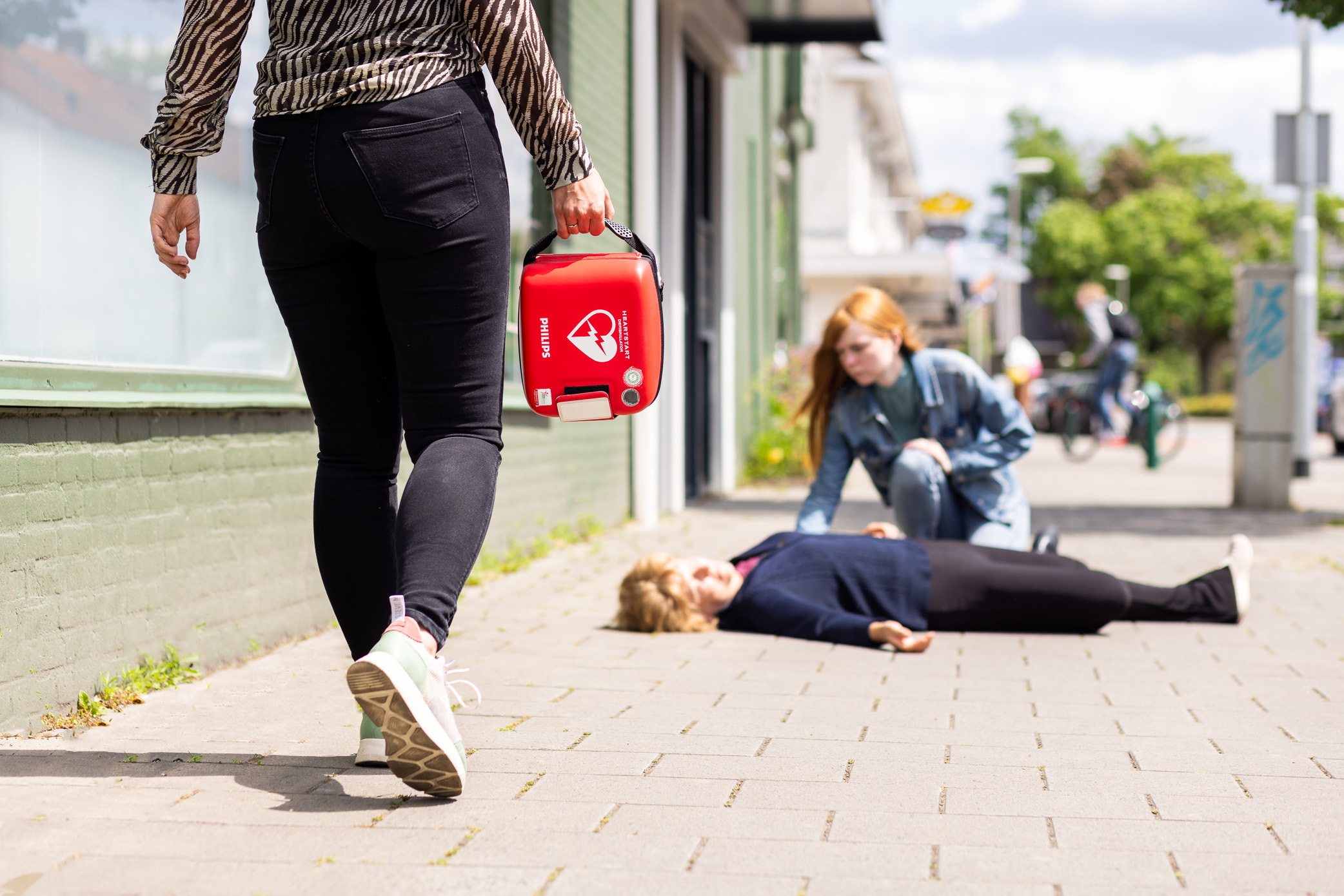
New heart research
Everyone knows that rapid action is needed in the event of cardiac arrest - preferably within six minutes. But new research from the Amsterdam UMC shows that a quick shock with an AED within a few minutes is vital. And that in three out of four cases, those six minutes are not reached. "We are doing well, but we can do better."
The Netherlands has a nationwide resuscitation network. Thanks to the many AEDs and volunteers, everyone with cardiac arrest could be resuscitated within six minutes of an emergency call. But how important are those six minutes actually? Because scientific evidence for those six minutes is limited.
Very important, says Hans van Schuppen, an anaesthesiologist and leader of the ARREST resuscitation study, a collaboration between emergency services and hospitals in North Holland. Their database contains data from 30,000 resuscitations, collected since 2005. This makes it one of the largest databases of resuscitations in the world.
"We have also collected the data from all AEDs, which is unique because few regions in the world actually go to the AEDs to read the data," says Van Schuppen.
The data from 3723 patients who suffered a cardiac arrest outside the hospital were analysed. It appears that if the first shock with a defibrillator (AED) is given within six minutes, in 93 percent of cases the cardiac arrhythmia that causes the cardiac arrest is successfully stopped.
For example, if the first shock was not given until more than 16 minutes later, this percentage dropped to 75 percent. Every minute the shock was given later, the chance of survival decreased by 6 percent. "A quick shock with an AED is therefore very decisive for survival."
The research by Amsterdam UMC provides more important information. For example, it appears that in three out of four resuscitations, the six minutes are not reached. "We are doing very well in the Netherlands, internationally we are in the top of a rapid response. In more than 60 percent of resuscitations, an AED is connected before the ambulance arrives. That is a utopia for many countries."
This is due to the use of 'first responders', such as citizen responders who are connected to a call system, or employees of the police or fire brigade. Good figures, but the reality is that in three quarters of the cases the AED was not connected within six minutes.
According to Van Schuppen, you need a few things to achieve that time, such as a good call system. "There are more than 200,000 people in the citizen emergency response system. That's good, but it's probably not enough. More people are needed who can get an AED and use it. In addition, there are AEDs in places that are not yet registered in the system and that are therefore not found by citizen emergency responders. They sometimes have to walk further than was necessary afterwards."
The Dutch Heart Foundation emphasises that citizen emergency responders are never sent to a place where an inaccessible AED is located.
"If there is no AED in a neighbourhood, someone has to make sure that one is there," says Van Schuppen. "In the Netherlands, there is no legal definition of who is responsible for administering that shock within six minutes. It would be fantastic if we could organise the system even better so that everyone can receive a shock with an AED within those six minutes. That would definitely save lives."
Source: RTL News
AED-Partner the Netherlands
Ekkersrijt 4301
5692 DJ Son
AED-Partner Belgium
Everselstraat 133
3580 Beringen